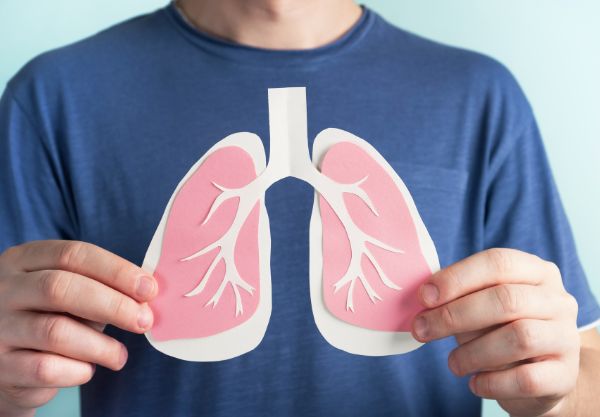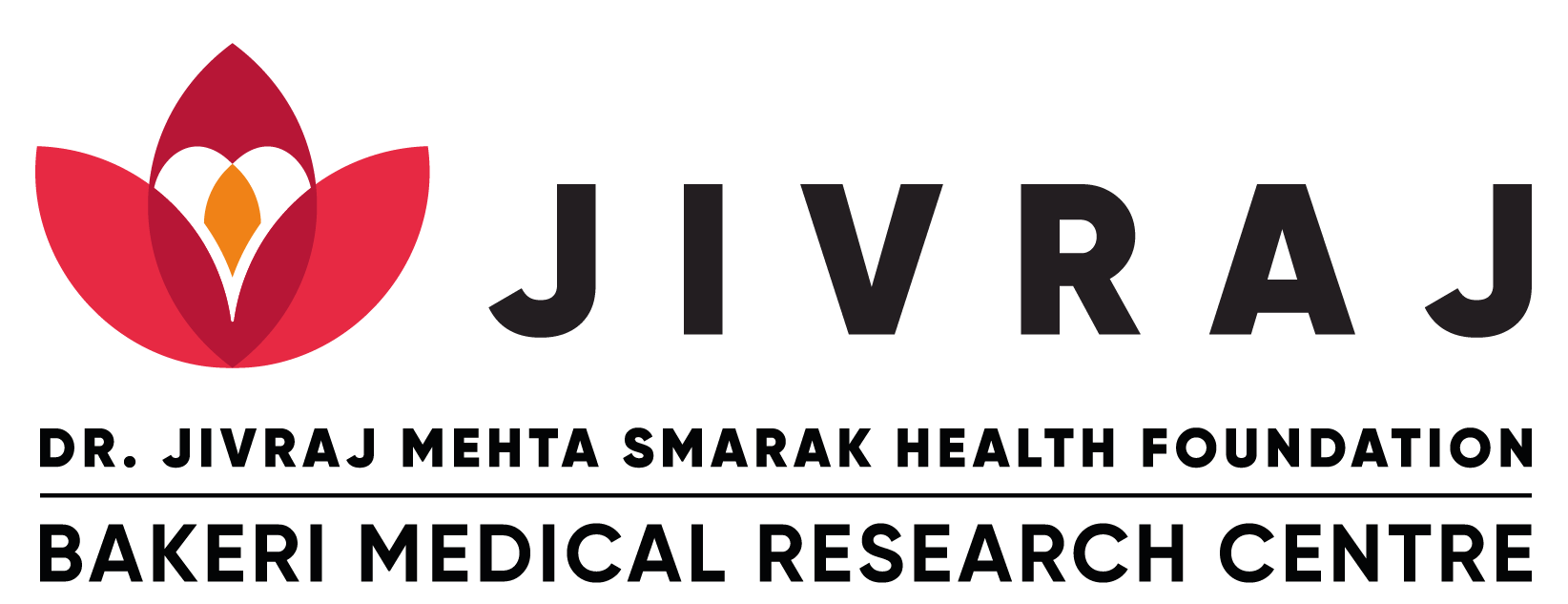Managing Respiratory Issues in the Monsoon: Tips from Our Pulmonology Department
The monsoon season brings much-needed relief from the scorching heat, but it also ushers in a host of health challenges, particularly when it comes to respiratory health. The increase in humidity, damp environments, and sudden temperature changes can exacerbate respiratory conditions like asthma, allergies, and infections. As a result, individuals with pre-existing respiratory issues or weakened immune systems are especially vulnerable. At Dr. Jivraj Mehta Hospital, our Pulmonology Department is committed to helping you understand how to manage these challenges effectively and improve your respiratory health during this season.
In this article, we will explore common respiratory issues that can arise during the monsoon, tips for managing these conditions, and preventive measures you can take to stay healthy and safe. We will also address some frequently asked questions (FAQs) related to respiratory health during the rainy season.
Understanding the Impact of Monsoon on Respiratory Health
Monsoon weather brings significant changes in the environment, such as higher humidity, rainfall, and cooler temperatures, which can affect the respiratory system in various ways. Here are the most common respiratory problems faced during the rainy season:
Increased Risk of Respiratory Infections
The increased moisture in the air during the monsoon season creates an ideal breeding ground for viruses and bacteria. As a result, people are more likely to develop respiratory infections, including the common cold, flu, pneumonia, and bronchitis. Damp conditions also encourage the growth of mold and mildew, which can trigger allergies and respiratory issues.
Exacerbation of Asthma
For individuals with asthma, the monsoon season can lead to more frequent attacks due to the increased humidity and allergens in the environment. Mold, dust mites, and pollen levels can rise, irritating the airways and making it difficult to breathe.

Allergies and Sinus Problems
The damp conditions in the monsoon season lead to the growth of mold, which is one of the most common allergens. Mold spores can trigger allergic reactions, including sneezing, coughing, and nasal congestion. Additionally, dust mites tend to thrive in humid environments, worsening allergy symptoms.
Post-Monsoon Respiratory Complications
After the monsoon, many people develop respiratory complications due to the lingering effects of moisture and the growth of bacteria. Pneumonia, tuberculosis, and other respiratory diseases can become more prevalent if proper care is not taken during the monsoon.
Testimonial
“I am truly thankful to jivraj mehta team who indeed saved me during my critical time. The jivraj team they are the brilliant and the services of hospital are tremendously good . I was admitted in general ward for illnesses ward experience is excellent “
Tips for Managing Respiratory Issues During the Monsoon
The key to managing respiratory issues during the monsoon is to stay informed about the potential risks and take appropriate steps to minimize exposure to harmful factors. Below are some expert tips from our Pulmonology Department on how to protect your respiratory health during the rainy season:
Keep Your Home Dry and Well-Ventilated
During the monsoon, it’s essential to prevent excessive moisture buildup inside your home. Moisture promotes the growth of mold and mildew, which can exacerbate respiratory issues. Use dehumidifiers, fans, and open windows (when it’s safe) to ensure proper ventilation. Regularly clean areas that tend to accumulate moisture, such as bathrooms and basements.
Monitor Air Quality
Keep track of the air quality in your area, especially if you live in regions prone to pollution. Pollutants like carbon monoxide, nitrogen dioxide, and particulate matter can worsen respiratory conditions, particularly asthma. You can use air purifiers at home to filter out allergens and pollutants from the air.
Limit Exposure to Pollutants
Avoid outdoor activities during heavy rainfall, when pollution levels can increase. If you have asthma or other respiratory conditions, stay indoors when air quality is poor. If you must go outside, consider wearing a mask that can filter out pollutants and allergens.
Avoid Damp Environments
Try to avoid spending too much time in damp environments where mold and mildew thrive. If you have to work in areas with high moisture levels, wear a mask to prevent mold spores from entering your airways. Always dry your clothes and bedding completely before using them to avoid mold buildup.
Keep Allergens in Check
If you suffer from allergies, be proactive in managing allergens. Use hypoallergenic pillowcases and bedding, and wash your sheets frequently. Additionally, use air purifiers and keep windows closed during periods of high pollen and mold spore count. If possible, avoid outdoor activities early in the morning when pollen levels are at their highest.
Practice Proper Hygiene
Wash your hands frequently during the monsoon to reduce the spread of viruses and bacteria that cause respiratory infections. Avoid touching your face, especially your eyes, nose, and mouth, to prevent germs from entering your respiratory system.
Client Speaks
“Dr.jivraj mehta hospital have a very professional and takes good care of patient. He explained me thoroughly the problem and solution.I would highly recommend everyone those who have a plan for any kind of body check up to Dr.jivraj mehata hospital.Thank you doctor and staff for taking good care.“
Stay Hydrated
Drinking plenty of fluids is essential for maintaining good respiratory health, particularly in the monsoon season. Fluids help thin mucus and keep the airways moist, which makes it easier to breathe. Warm beverages like herbal teas or soups can be especially soothing for the throat and respiratory system.
Follow Your Asthma Management Plan
For those with asthma, it’s critical to follow your asthma management plan during the monsoon. Ensure that your inhalers are in good working condition and always carry them with you. Avoid triggers like damp environments and allergens that may worsen your symptoms.
Seek Medical Advice Early
If you experience persistent coughing, difficulty breathing, or signs of a respiratory infection, seek medical attention promptly. Early intervention can prevent complications and ensure proper treatment.
Vaccinate Against Flu and Pneumonia
The monsoon season coincides with flu season, making it essential to get your annual flu shot. Pneumonia vaccines are also recommended for people with pre-existing respiratory conditions, such as asthma, COPD, and the elderly, to reduce the risk of complications.
Conclusion
The monsoon season can pose significant challenges for respiratory health, especially for those with asthma, allergies, or other respiratory conditions. By following preventive measures such as maintaining good hygiene, staying hydrated, avoiding damp environments, and using air purifiers, you can reduce your risk of respiratory infections and asthma flare-ups. If you experience any worsening symptoms or persistent issues, it’s important to consult with a healthcare professional for early diagnosis and treatment.
At Dr. Jivraj Mehta Hospital, our Pulmonology Department is dedicated to providing expert care and advice to help you stay healthy during the monsoon season. Don’t hesitate to reach out to us for further information or if you need assistance managing your respiratory health.
Frequently Asked Questions (FAQs) About Pulmonology
How can I prevent asthma attacks during the monsoon season?
Asthma attacks are often triggered by allergens like mold, dust mites, and pollen. To prevent attacks, avoid exposure to these allergens by keeping your home dry, using air purifiers, and staying indoors when the air quality is poor. Always carry your inhaler and follow your asthma management plan.
What are the most common respiratory infections during the monsoon?
The most common respiratory infections during the monsoon include the common cold, flu, pneumonia, and bronchitis. These infections spread more easily due to the increased humidity and the growth of mold and bacteria.
How do I know if I have a respiratory infection or just seasonal allergies?
Seasonal allergies typically cause sneezing, nasal congestion, and itchy eyes, while respiratory infections may be accompanied by symptoms like fever, persistent cough, and shortness of breath. If you are unsure, it’s best to consult a doctor for a proper diagnosis.
Can air purifiers help with respiratory health during the monsoon?
Yes, air purifiers can significantly improve indoor air quality by removing allergens, dust, and pollutants from the air. They are particularly helpful for people with asthma or allergies.
What foods should I eat to boost my respiratory health during the monsoon?
Foods rich in vitamins A, C, and E can help support your immune system and promote respiratory health. Include fruits and vegetables like oranges, berries, spinach, and carrots in your diet. Drinking warm fluids like herbal tea can also soothe the respiratory tract.
Is it safe to exercise outdoors during the monsoon?
Exercise during the monsoon is safe as long as you avoid areas with high moisture levels or pollution. If air quality is poor or if it’s raining heavily, consider indoor exercises like yoga or walking on a treadmill.
What should I do if I feel like I’m getting a respiratory infection?
If you experience symptoms of a respiratory infection, such as coughing, fever, or shortness of breath, rest, stay hydrated, and avoid exposure to allergens. Seek medical attention promptly to get the right treatment.
How can I keep my home mold-free during the rainy season?
Use dehumidifiers and keep windows open for ventilation. Regularly clean areas prone to mold growth, such as bathrooms, kitchens, and basements. Use anti-mold sprays and ensure that your home is properly ventilated to reduce moisture buildup.
What are the signs that my asthma is worsening during the monsoon?
Signs of worsening asthma during the monsoon include increased shortness of breath, wheezing, coughing, and difficulty sleeping. If you experience these symptoms, contact your healthcare provider immediately.
Can I use nasal sprays or antihistamines for monsoon allergies?
Yes, nasal sprays and antihistamines can help manage allergy symptoms such as congestion and sneezing. However, it’s important to consult with your doctor before starting any medication, especially if you have a pre-existing health condition.








